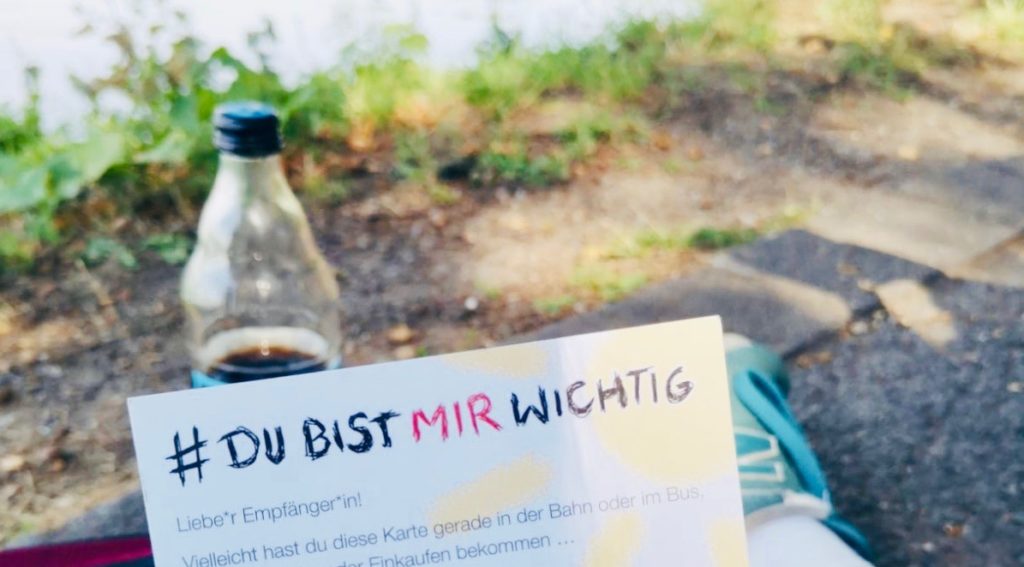
The three authors of this PassionWeek save lives! They explain and elucidate, they are the first on accident site or respond to calls for help by e-mail in the greatest crises. They are there when you need them! When you need them. With their passion they are not only surrounded by sadness and “drama”, but also by beautiful encounters and above all by effective and therefore successful events. They have given us emotional answers to questions about their passion for “saving lives” and give important tips on how also we can become life savers.
.Laura fights for the lives of people as a paramedic with the Johanniter
“At the beginning of winter, we were called to an ambiguous outreach in a residential area shortly before the end of our service, supposedly someone had collapsed in the street, nothing more was known … We found a young woman about my age who spoke only slowly and passed out shortly after we arrived. In the ambulance we examined her completely during the paramedics were on their way to us. All in all, the treatment and the trip to the intensive care unit of the hospital lasted maybe 20 minutes. I was just impressed with how the cooperation in my team went well even at the end of a long service in the middle of the night. Also, the cooperation with the emergency doctor, who joined us later, went as if she had been there from the first minute. It just went “hand in hand”, paramedics were there from start to finish teamwork,” tells us the 21-year-old paramedic Laura from Cologne.
.Through responsibility Laura has found her passion
Laura joined the Johanniter school ambulance service early on. She especially liked the sense of responsibility. “That’s why I became a volunteer and later a volunteer social worker. Yes, and today it has become my profession. I was impressed by my colleagues from the ambulance service from a very early age. Their reliability and expertise were a role model for me, and I wanted to be able to do the same!
.The Johanniter-Unfall-Hilfe e.V.
The Johanniter-Unfall-Hilfe e.V. is one of the largest relief organisations in Europe. Its areas of operation are rescue and medical services, disaster control and first aid training. In addition, the organisation provides social services such as working with children and young people, as well as care and nursing for the elderly and sick people. Internationally, Johanniter is involved in humanitarian aid, for example in cases of famine and natural disasters.
The daily challenge of my passion
It is difficult to always strike a balance between the empathy that our work requires and personal emotions. I try to build up a professional attitude to keep the necessary distance. This is particularly difficult when working with children … the threshold is particularly low there!
.…then I just don’t know what’s coming
We bear a high responsibility in the rescue service, the people who call us are in an exceptional situation. We are expected to know what to do in an emergency case …
The working day actually begins quite unspectacularly – we first check our vehicle at the beginning of the service. This means a complete technical check, but also the medical equipment has to be checked completely … from the plaster to the ECG! Yeah, and then I just don’t know what’s coming… this could be a minor home accident, an acute medical emergency like a heart attack or stroke, but also a spectacular traffic accident. Anything is possible!
.What if I can’t save a life for once?!
What if it’s too late or there’s nothing we can do? I have to go to the people affected to maintain a professional distance. I need to be able to tell myself that I’ve done the possible …that I have given the best care possible. But talking to colleagues and in the Circle of friends, because that gives me the feeling that I am not alone with my experiences. Also, there is always the possibility of support by a support team.
.Laura’s #girlsforgirls tip
Do what you enjoy, stand up for yourself and your dreams, and don’t let yourself be beaten down when things get difficult. Follow your goals and always stay on the ball, no matter how hard it is sometimes, in the end it’s worth it!
.Are you interested in working as a paramedic?
And for those who would like to take a look “over the fence”: A voluntary social year sometimes helps to get to know oneself!
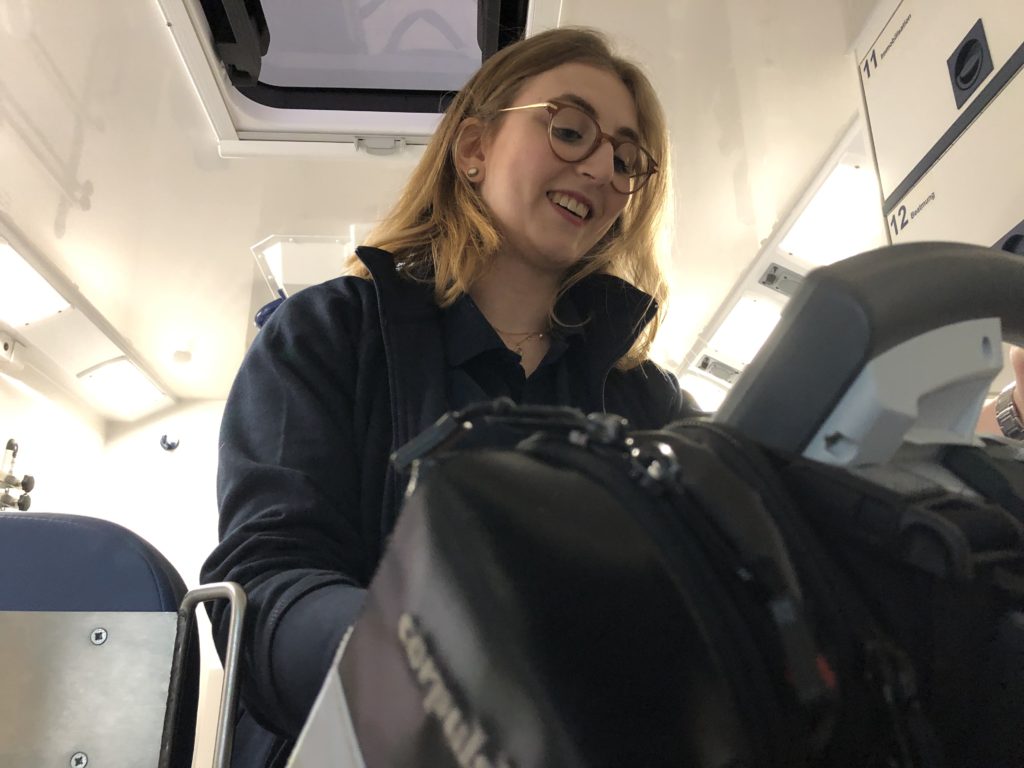
Photo: Laura from the Johanniter The Defi-Check shows the routine checking of the defibrillator. 
Photo: Laura from the Johanniter Medication control the daily review of the emergency medication.
Saving lives through organ donation – Anna von Junge Helden explains
“The probability of needing an organ once is about four times higher than the probability of being able to donate one. For this reason alone, I personally feel the need to deal with it and decide. For me it is clear: I would take, so I give. It is not as if the sick were on one side and the healthy on the other, because it can treasure everyone,” Anna Barbara Sum (35 years old) from Munich, co-founder of “Junge Helden”, tells us.
One of my best friends and founder of our association, Claudia Kotter, was also organ donation. I know from personal experience how infinite the gratitude is that …you empathize with the donor and his or her relatives. Not a single day has passed since… that she hasn’t thought about him.
.Who’s behind the Junge Helden
(Young Heroes)?
.
Junge Helden is a registered non-profit association, which is supported by the commitment of many volunteers, prominent supporters and private donations. Its aim is to inform teenagers and young adults about organ donation, to motivate them to make a decision and to communicate this decision to relatives and friends.
Why are there so few potential organ donors?
One reason is that the organ donor card “meets” one far too rarely. It is true that health insurance companies are required by law to ask their policyholders by mail every two years to make a decision regarding organ donation. However, we hear quite often that the postal service has not reached the insured persons. Otherwise, the organ donor card is only issued selectively on the basis of private initiatives distributed. But there is no structure for this.
Another reason is probably the lack of a broad social debate on death, to which the topic of organ donation is linked. With our current legislation, it is easy to suppress the topic again and again, because you are hardly confronted with it unless you are affected.
.My passion is to educate people about organ donation
We have been organising a wide range of educational events since 2003. From the very beginning it was important to us to create an atmosphere in which everyone dares to ask questions and addresses uncertainties. In the vast majority of cases we can clarify those. We also address the fears and concerns known to us on our website. We have a great deal of understanding for these and try to dispel them on the basis of specialist information. At the same time, we do not want to persuade anyone to donate an organ. Everyone should decide for themselves whether they want to donate their organs or not. We just think it’s important to deal with it.
.These three important questions will help you
- Do I have enough information to make a decision?
- Would I accept an organ myself if I needed one?
- Have I communicated my decision to my relatives?
Photos: Junge Helden e.V.
When the courage to face life has left you – Ann-Marie from [U25]-Online Suicide Prevention in Gelsenkirchen advises young people of the same age who are in a serious crisis situation
What about writing with people who are suicidal?
My job at [U25] is to be there for my clients, to listen to them and give them tips. I like to take the time to answer the mails and write my views on the various problems I encounter. Ingeneral, all new clients receive a reply within 48 hours, after which we as consultants have 7 days to reply to mails. This sounds like a rather long time, but it has been proven that this deceleration has a positive effect on prevent suicide, as they can wait for an answer and takethe time to write down their thoughts and problems.
.Saving lives begins with addressing
I think the biggest challenge was to start here at all. The inhibition threshold for working in suicide prevention and writing with “real people” was high at first. At the beginning I was still afraid of writing something wrong and then being “guilty” of a suicide (attempt). Luckily this fear quickly disappeared, because the training we first take is a good preparation for the work. We at [U25] save the lives of people whose courage to live has left them. However, talking about problems and suicidal thoughts does not make you think of taking your own life. I have been writing emails for [U25] for about seven years now, and I have developed a good routine. But if it should ever happen that I feel overwhelmed, the team catches me 100%. Chantal and Julia, the full-time staff are available 24/7 in emergencies and do a really great job.
.Our message at [U25] #dubistmirwichtig
I like to remember our campaign for World Suicide Prevention Day on September 10th, 2017 in Berlin, where we met with all locations of [U25] and walked all over Berlin in small groups to talk to passers-by about the huge taboo subject, unfortunately suicide still represents speaking. Passers-by could also write a life-affirming message on a small whiteboard and post a photo under our hashtag #dubistmirwichtig
.How can we measure success?
I also like to remember clients who, after a long period of counselling, decide to break off counselling of their own accord, because they feel so much better and they feel ready to live life without us again.
.u25 – A consultation with and by peers.
This is how the mail consultation of [U25] works:
- You register anonymously with a nickname via Helpmail. This takes a minute and you can write.
- You write us your request and send the message.
- We will read your mail and answer you within two working days. This can be the beginning of a longer mail-to be your companion – if you want to.
- We are not bound by confidentiality.
- Your IP address will not be recorded.
- The consultation is free and anonymous.
What happens if someone kills himself/herself?
But we try to capture the positive. Therefore, we have made our tree of life, which is made of wood is carved. For us, this symbolizes above all the successes we achieve with our consulting could.
.Our #girlsforgirls tip?
One conversation can save lives! Don’t hesitate if you are worried about your loved ones and talk to them about it.
The most important emergency numbers for you
.- Police: 110
- Rescue and fire service: 112 (valid throughout Europe and in many other countries)
- Medical on-call service: 116117
Which number you should call in which case, you can find out here.
…February 11th was the European Day of Emergency. With the hashtag #112live, rescue workers could post mission reports to draw attention to their work. On average, 268 emergency calls per minute are received via 112 throughout Europe. That is 141 million emergency calls per year.
.How do you feel about this subject? How do you feel about the possibilities of saving lives? Why don’t you tell us in the comments?
This article determined unpaid and unsolicited advertising.
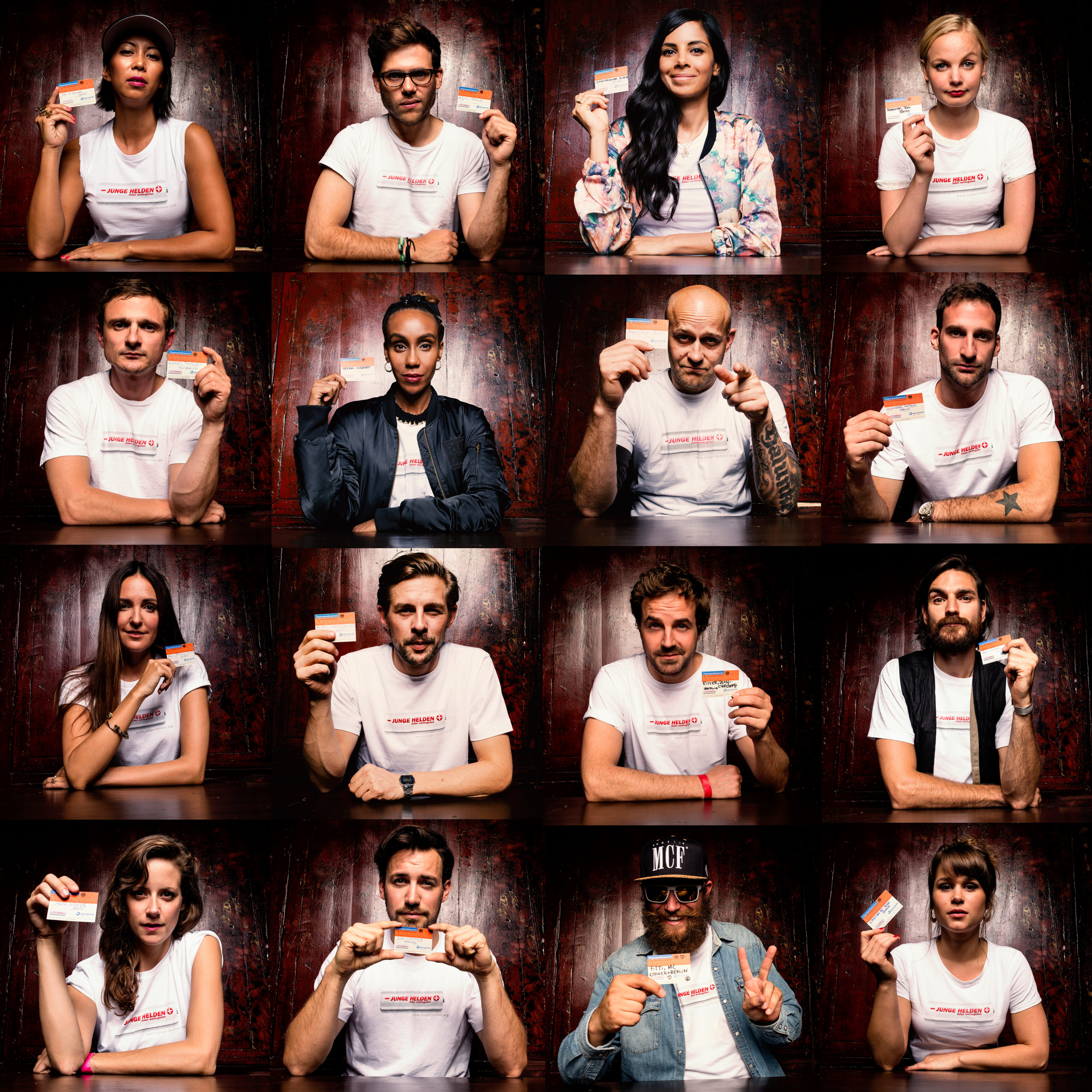




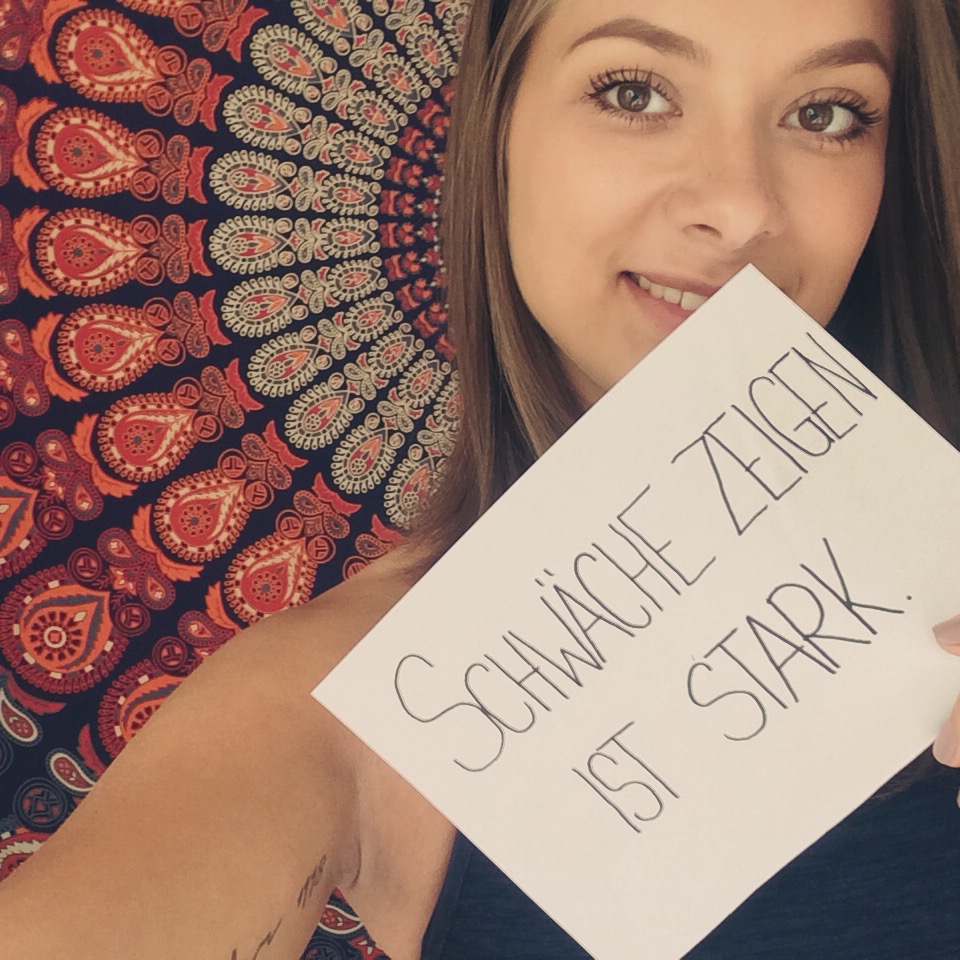


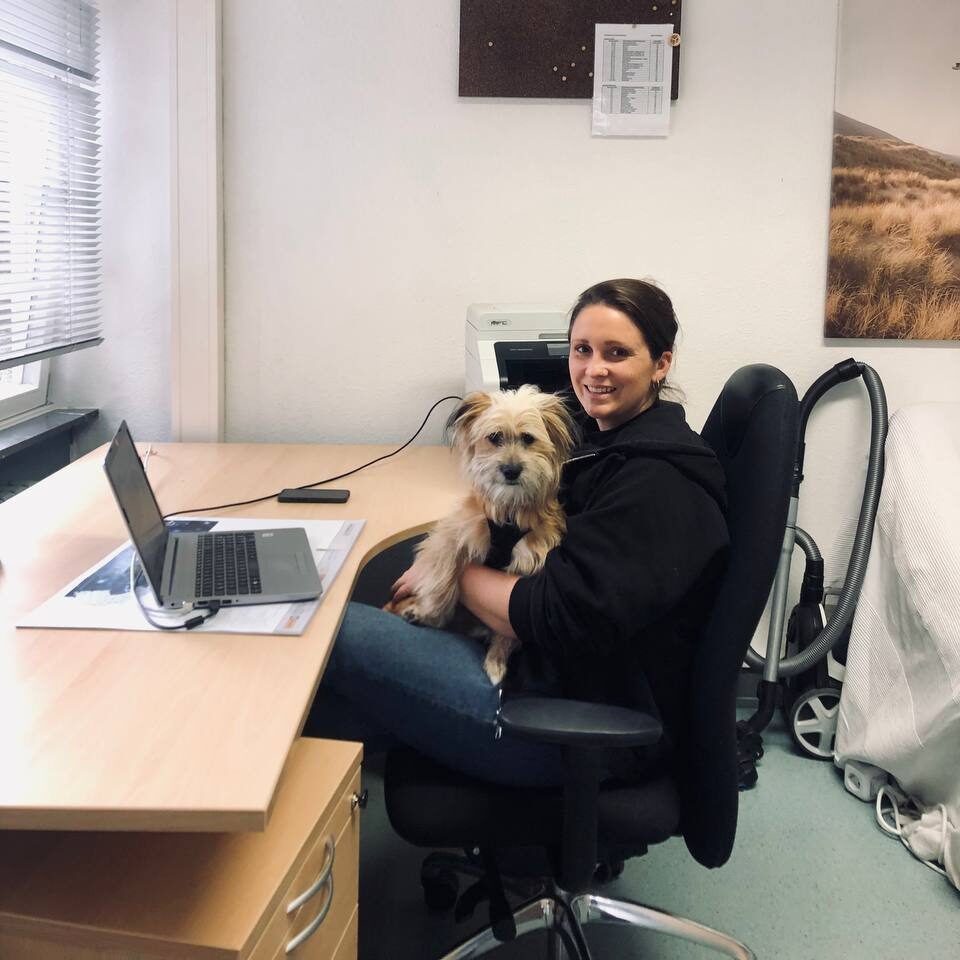

Kommentare